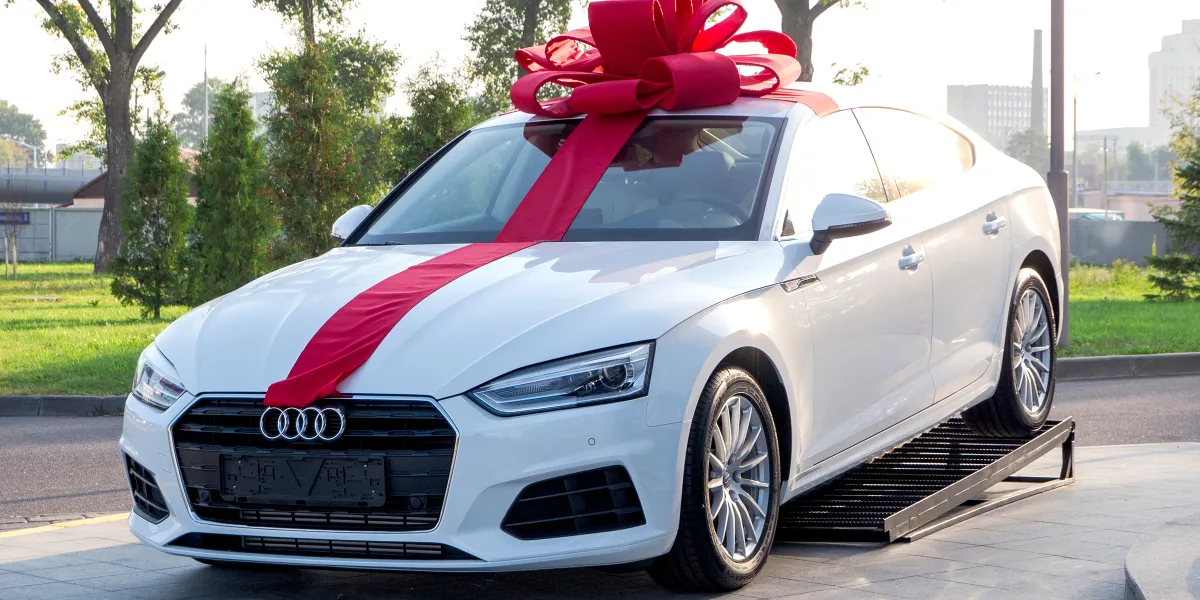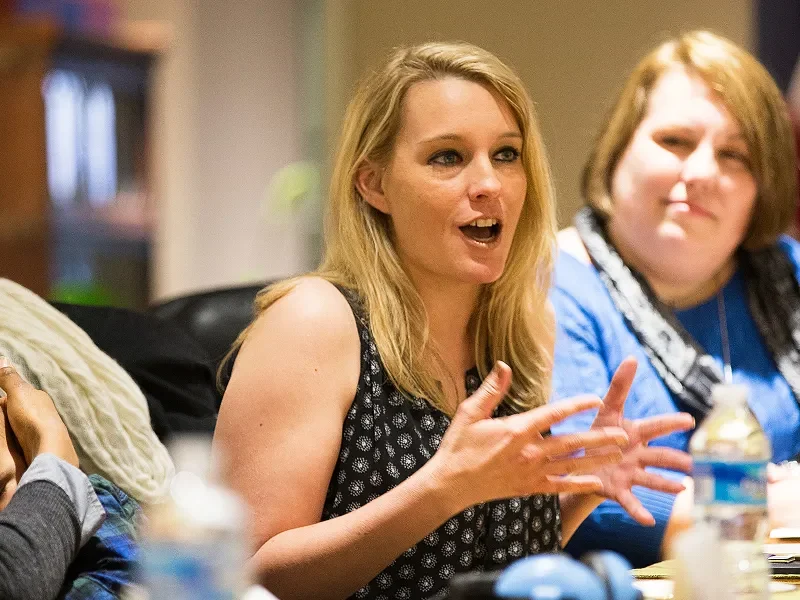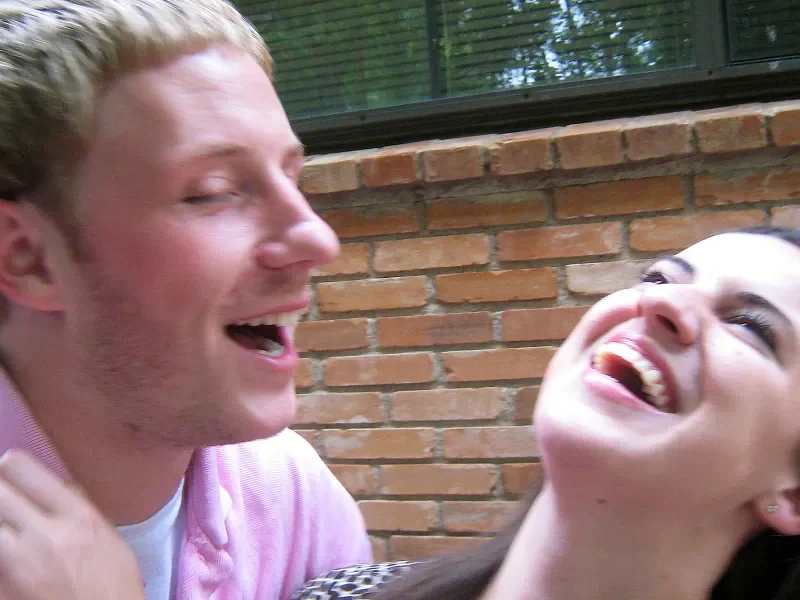When Kayla abandoned her baby, I gave up everything to raise him as my own. Fifteen years of scraped knees, birthdays, and bedtime stories later, she waltzed back into his life with a car and stole him away. Five years later, a knock at my door turned everything upside-down.
I hadn’t seen my little sister, Kayla, for months, but now she was on my doorstep with a bundle in her arms — a baby boy, maybe six months old, half-asleep and fussing.
Her usually perfect eyeliner was smudged down her cheeks, and that designer perfume she always wore had faded to something stale and sad.
“Please look after him, Mae, just for a couple of weeks while I figure things out,” she mumbled, thrusting a diaper bag into my free hand.
“What?” My fingers clenched reflexively around the bag strap. “Kayla, what happened? When did you—”
“It’s complicated.” She adjusted the baby as though her arms might break beneath his weight. “But I’ve got some opportunities lined up. Good ones. I just need breathing room, time to settle in. Two weeks, tops, Mae. Please.”
That was Kayla-speak for “I’m in trouble again.” Her eyes, so much like mine but always wilder, darted to her car.
“Two weeks,” I repeated firmly.
“You’re a lifesaver, sis.” She flashed me a relieved smile as she handed the baby over. “I’ll call tomorrow.”
But weeks blurred into months, and Kayla vanished like smoke.
The only communication was a text every few weeks: “Need more time” or “Can’t talk now.”
Then nothing at all.
Until three months after she left, when an envelope arrived in the mail. Inside, was the baby’s birth certificate, and a nasty surprise.
The certificate was blank where a name should be. So, he was official, but nameless. It listed Kayla as the mother and no father at all.
I thought of my grandfather, Liam, the only stable male figure in Kayla’s and my chaotic childhood. He had been kind, steady, patient.
Then I looked at the little boy playing on the floor with his toys.
“Liam it is,” I decided.
That night became the first of many landmarks: first steps across my living room, first words, first day of kindergarten.
I became his everything — rocking him through fevers, staying sleepless through teething nights, and laughing as we built towers and chunky wooden puzzles, and stuck our tongues out at each other.
When Liam was seven, his teacher called about getting him braces.
The cost made my stomach drop, but I picked up a graveyard shift cleaning offices downtown, scrubbing toilets with hands already blistered from my day job at the warehouse.
When Liam turned ten, the school required laptops for their new curriculum.
The pawnshop’s neon sign buzzed overhead as I traded my beloved guitar (the only thing I still had from my brief stint in a college band, my only real indulgence) for a laptop that would get him through.
“Where’d your guitar go?” he asked a week later, noticing the empty corner of the living room.
“Just loaned it to a friend,” I lied, hating how easily it came.
Kayla remained nothing but a ghost. Maybe a birthday text every other year, brittle and hollow: “Tell him happy birthday from Mom.” As if the word “Mom” belonged to her by right, not by effort.
But everything changed on Liam’s 16th birthday.
I was setting up the small celebration I’d planned — just a few friends, pizza, and a homemade cake — when an engine purred outside.
I peeked through the blinds to see a gleaming SUV that probably cost more than a year of my salary.
Kayla stepped out, looking like a stranger. Flawless makeup, expensive clothes, her hair highlighted to perfection.
Liam came downstairs, freezing when he saw her through the open door.
“Hey, baby,” she said. “Sweet 16, huh? I brought presents.”
He looked at me, confusion rippling across his face. I’d shown him pictures of Kayla, and told him the truth in age-appropriate ways over the years: his mother loved him but couldn’t take care of him. She had problems. Maybe someday she’d be ready.
Apparently, someday had arrived in a $60,000 SUV.
She visited every day that week, whisking him away to amusement parks, buying him flashy clothes, and spinning tales of “complicated times” and “endless love” that had kept them apart.
Then she showed up with the most flamboyant gift yet.
One scorching afternoon in July, a silver convertible pulled up to our faded duplex. It was topped with a garish red bow.
I stepped onto the porch as Kayla climbed out of the convertible. Liam gasped at my side.
“What do you think, baby?” Kayla grinned as she strutted toward us, keys dangling from manicured fingers. “It’s all yours.”
Liam whooped for joy. He leaped down the porch steps and ran to hug Kayla.
“You don’t need to struggle here anymore,” she declared, locking her gaze with mine over his shoulder. “Come live with me, baby. It’s time we were a family again.”
Liam turned to me, confusion, guilt, and yearning battling in his eyes. I saw the moment the yearning won.
And just like that, the boy I’d named and raised like my own was gone.
No hug. No goodbye. Just excitement overtaking guilt as he slid into the driver’s seat of a car worth more than everything I owned.
Two days later, I got the text: “Thanks. I’ll give her a chance.”
Alone in our silent house, I gathered up tiny drawings labeled “Auntie/Mom,” crayon Mother’s Day cards, and packed them in boxes.
I grieved like a mother without a grave to visit.
There were no casseroles, no sympathy cards, no formal ceremony to mark my loss. Just empty spaces where a boy had grown up and a silence where his laughter had been.
At work, people asked about Liam constantly.
I developed a script: “He’s living with his mom now. Yes, his actual mom. No, it’s great, a wonderful opportunity for him.”
Eventually, they stopped asking.
Eventually, Liam existed only in my memories and the part of my heart he’d taken with him.
Five years is both an eternity and nothing at all.
I’d downsized to a one-bedroom apartment across town, switched to a better-paying office job, and even dated occasionally.
Life had a new rhythm; quieter, steadier, lonelier.
Then came another knock.
When I opened the door, I nearly didn’t recognize him.
“Liam,” I breathed.
He stood awkwardly, hands jammed into pockets, a duffel bag at his feet.
“Hey, Aunt Mae.” His voice cracked. “She’s… she’s kicking me out. Said I need to figure out my own life now.”
I said nothing, just stared at this stranger wearing Liam’s face.
“College didn’t work out,” he continued, words tumbling out now.
“I wasn’t focused enough, she said. Wasting her money. And when her boyfriend moved in last month, things got worse, and—” He stopped, swallowed. “I didn’t know where else to go.”
He wasn’t here to apologize… he just had nowhere else to go.
The hurt and betrayal that I’d thought I was over returned full force.
But he was my little boy, and he had nowhere else to go.
“You can take the couch,” I said, stepping aside. “I don’t have a spare room anymore.”
Relief flooded his face. “Thanks. I won’t be any trouble.”
“I have rules,” I told him. “This isn’t like before.”
He nodded quickly. “Of course. Whatever you say.”
Liam did his own laundry and contributed to the rent from his part-time job at a garage.
Slowly, cautiously, we rebuilt something from the ashes.
Our conversations grew less guarded. He told me about the disasters of living with Kayla — the revolving door of boyfriends, the drinking, the expectations he could never quite meet.
“The car was repossessed after the first year,” he admitted one night over takeout. “Turns out she hadn’t actually bought it. Just leased it to impress me.”
I nodded, unsurprised.
He looked up. “I should have called. After I left. But everything was so great at first. I was finally getting to spend time with my mother, and then, when things turned bad… it felt like it was too late, like I could never make up for what I did to you.”
“It hurt when you left like that,” I admitted, “but you were a kid, as charmed by Kayla as everyone else she ever set her sights on winning over. I get it, but you still should’ve called.”
He smiled then, a small, sad smile that carried the weight of our shared history. “Thanks for giving me a second chance, even if I’ve done nothing to deserve it.”
I looked at him, this boy-turned-man who’d broken my heart.
“That’s what family does,” I told him, and for the first time in years, the word didn’t taste bitter on my tongue.
Liam broke. His shoulders shook as he buried his face in his hands. I didn’t think twice; just moved over and put my arms around him.
“I’m so sorry,” he said between sobs.
Outside, rain tapped gently against the windows, wrapping our small apartment in a cocoon of sound.


